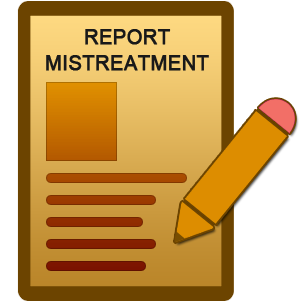Reporting Student Mistreatment
The Johns Hopkins University School of Medicine is committed to providing a positive learning environment for students. Any student experiencing mistreatment from any member of the campus community including a faculty member, resident, fellow student, staff member or patient, should report the mistreatment to the committee. Reports of student mistreatment or unprofessional conduct may be submitted by using this form. When submitting a complaint of student mistreatment, complainants should provide their name and contact information. Claims will be confidentially investigated, maintaining complainant anonymity to the extent possible, however, based on facts of a case, anonymity cannot be guaranteed. Anonymous complaints will be logged and investigated to the extent possible, however, without the ability to obtain additional information from the complainant/reporter, be advised that it is difficult to process such investigations.
Reporting Form
Use the form to report any mistreatment that you have experienced or witnessed. You may report something that happened to you, something that you witnessed happening to someone else, or something that was reported to you.
The Process
You may file a report for informational purposes only OR to request follow-up (e.g. a meeting with a member of the committee) to discuss the episode.
You may file a report on your own behalf or because of something you witnessed happening to someone else. A faculty member or peer who has had someone report something troubling to them may also file a report through this site.
Your report will be AS CONFIDENTIAL AS POSSIBLE. For a variety of reasons, most primarily ensuring that people who submit reports are safe and that they can be contacted for more information if the case is egregious or an emergency, we do not allow fully anonymous submissions. However, the committee uses a process to ensure that your report will remain confidential where possible and no follow-up will happen without your awareness.
The chair will be able to log in and view the report. He/she can review any information about the type of mistreatment that occurred as well as any considerations listed about to whom he/she should assign the case, including conflicts of interest or other explicit requests.
The chair will then assign the case to a member of the committee.
Members of the committee who are not the Chair can only view the cases they have been assigned.
If the report requests follow-up, or if mandatory reporting is required by policy (sexual harassment, for example), the committee member will contact the submitter within one business day.
The member of the committee will then provide counsel, information, and guidance to the submitter, allowing the submitter to process what has happened with reflective opinions provided as helpful. They will help the submitter decide how they feel about what has happened and what the submitter hopes and expects with regards to follow-up. They will then create a plan with the submitter for following up on the event, including appropriate next steps in discussing the events with others and staying in communication.
The submitter can also request that any follow-up be delayed to help protect confidentiality. The MILES Committee will balance the need to provide follow-up information to ensure that the submitter is safe with the submitter's request that follow-up be delayed. In mandatory reporting situations such as child endangerment or sexual misconduct, follow-up will proceed carefully to ensure that the submitter's wishes for confidentiality be respected whenever possible.
In certain circumstances, the committee is obligated to forward reports to other university or government offices. For example, if sexual assault or other sexual misconduct is reported, the committee is legally required to report the allegations to the university's Office of Institutional Equity. As another example, if child abuse is reported, the Office is legally required to report the allegations to the State of Maryland.
Any further steps taken will be done with the student’s full awareness and with every intention of always "closing the loop" to follow-up.
Other Avenues
You are welcome to discuss mistreatment you have experienced, or something you find troubling but are not sure whether it constitutes "mistreatment", with anyone whom you trust!
Please feel free to reach out to the Office of Student Affairs, your Colleges Advisers, the Clerkship directors for your particular clerkship, Department chairs/Program directors, trusted mentors, or anyone else with whom you feel comfortable discussing what you have experienced. You can find links to other resources HERE.
However, we do HIGHLY encourage submissions through this site. Even if you have already discussed it with someone else or would prefer to do so, or would prefer not to discuss the episode at all, it is worthwhile to submit a confidential report to the MILES Committee. This allows the committee to accumulate more complete data on the types and frequency of mistreatment here, and will allow them to detect patterns if what happened to you also happens to someone else.
You may also give someone with whom you have discussed this episode your permission to submit through this site on your behalf.

